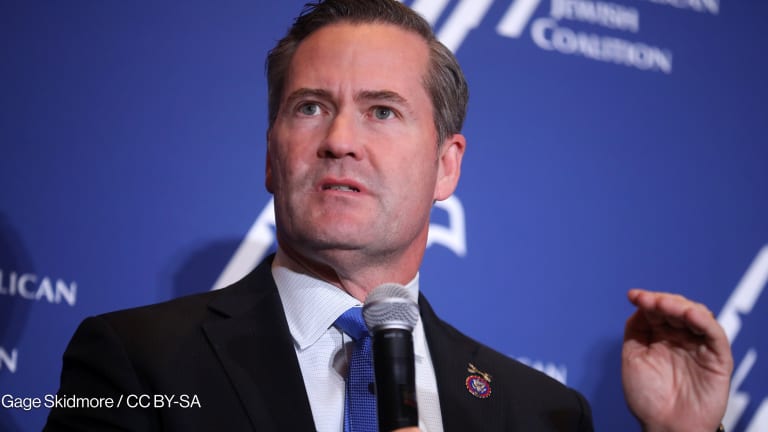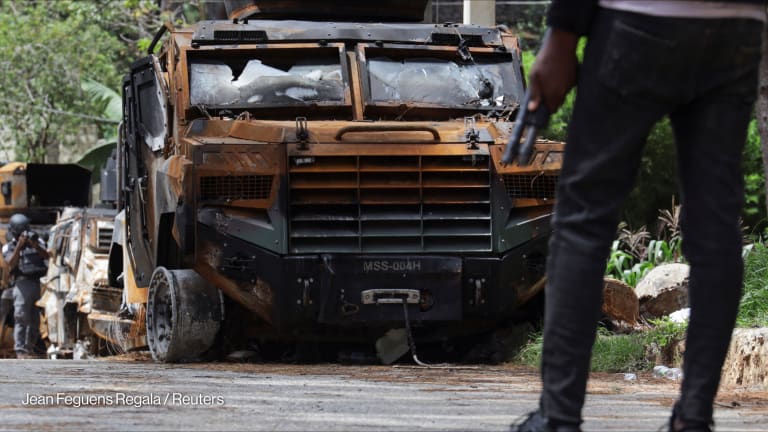
They tend to the sick, feed the hungry and save lives in some of the poorest and most dangerous places on Earth. And for one day each year, on Aug. 19, the world celebrates these selfless, unsung heroes.
The World Humanitarian Day was borne out of a U.N. General Assembly resolution on Dec. 11, 2008. It was prompted by tragedy.
Five years and nearly four months earlier, Sérgio Vieira de Mello, then the special representative of the U.N. secretary-general to Iraq, died along with 21 colleagues in the bombing of the Canal Hotel in Baghdad, which had served as the global body’s headquarters in Iraq since the early 1990s.
The family of Vieira de Mello – and the foundation created to honor the memory of this Brazilian national and one-time U.N. high commissioner for human rights – lobbied tirelessly, and a resolution, A/RES/63/139, was cosponsored by the U.N. ambassadors of France, Switzerland, Japan and Brazil.
Since then, the United Nations has undertaken measures to bolster the security of its staff. In 2009, the U.N. System Chief Executives Board, the highest-level coordination mechanism at the United Nations, came out with a vision statement articulating a need to “adopt a shift in culture and mindset, from a ‘when to leave’ to a ‘how to stay’ approach to one of security management.” Two years later, the U.N. implemented its revised framework of accountability for security management, which identifies the actors and defines their responsibilities in ensuring the safety, security and well-being of staff while performing U.N. activities in an effective and efficient manner.
The global body is also working to update its training on security for its workers. It has two types of self-administered and computer-assisted learning programs: One is mandatory for all staff, and another is an advanced course for those who will be deployed in U.N. duty stations designated with any of the five security phases – precautionary, restricted movement, relocation, program suspension and evacuation.
But those measures can only go so far, as shown by the deadly attack against the U.N. mission in Afghanistan last April.
“Those who lost their lives in today’s attack were dedicated to the cause of peace in Afghanistan and to a better life for all Afghans,” U.N. Secretary-General Ban Ki-moon said in a statement on April 1. “These brave men and women were working in the best tradition of the United Nations and gave their lives in the service of humanity.”
U.N. staff are not the only ones facing security risks when helping the needy in areas beset by disasters, poverty and conflict. In Afghanistan, there is even a group whose sole mission is to monitor attacks against employees of non-governmental organizations.
The U.N. handbook “To Stay and Deliver” offers tips inspired by the experiences of more than 200 aid workers, beneficiaries and intermediaries to secure access in conflict-torn regions such as Afghanistan, Pakistan and Somalia, which have witnessed the highest numbers of crimes against humanitarian workers lately. They include actively building good relations and consent with local communities and parties to conflict, as well as using diaspora nationals as international staff and low-profile approaches to branding.
World Humanitarian Day, of course, is not just about recognizing the hardships and sacrifices of U.N. and other aid workers. It is also a day to remember their achievements and the great difference they make in the lives of those they work with.
“These humanitarians often brave great danger, far from home. They work long hours, in the most difficult conditions,” Ban said in his message for World Humanitarian Day 2011. “Their efforts save lives in conflict and natural disaster. They also draw the world closer together by reminding us that we are one family, sharing the same dreams for a peaceful planet, where all people can live in safety, and with dignity.”
Read more aid worker security:
More on humanitarian relief:
More on ECHO:
The State of EU Humanitarian Relief: A Conversation with ECHO Chief Kristalina Georgieva
Wanted: Technical Experts for EU’s Overseas Humanitarian Aid Missions
Check out last week’s DevTrivia on aid fraud control and play the DevTrivia game on Facebook.








